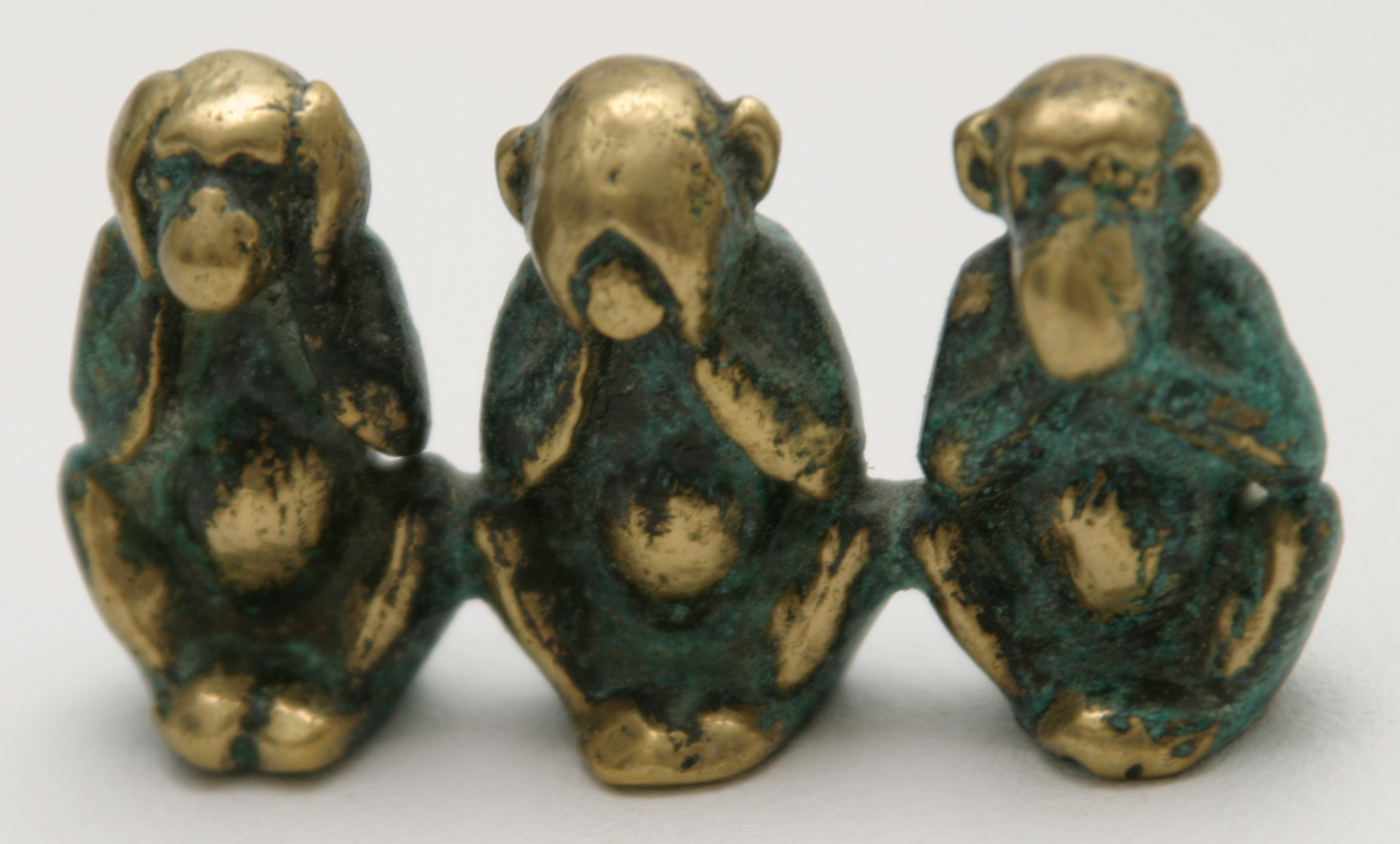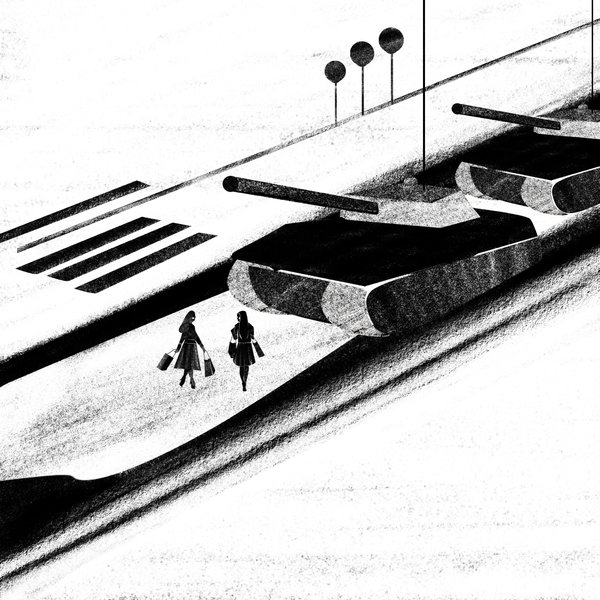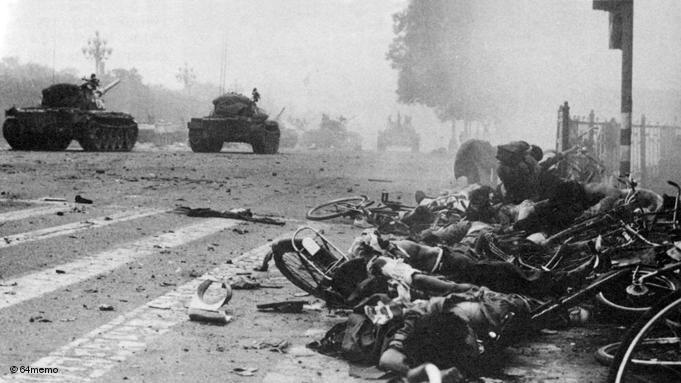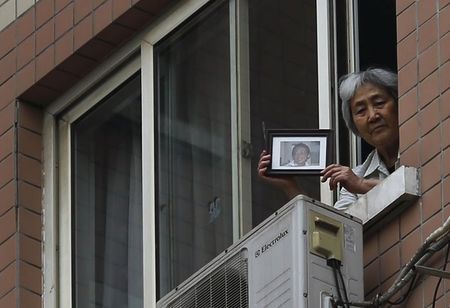What Chinese cannot not talk about …
In a previous post, I mentioned the heavy hand of CCP coming down on internet access each year in the weeks leading up to date of the Tian'anmen Massacre in 1989.
What CCP sincerely wants is for Chinese netizens to model the three monkeys – see, hear, speak no evil – evil, of course, being in the eye of the CCP beholder and specifically any sight, sound, voice or thought related to the events leading up to and during June 4, 1989.

But netizens are tenacious. They are inventive in devising terms to get around blocking of all sorts, but particularly the blocking of 6-4 remembrance.
China Digital Times maintains a list of terms, indicating the extraordinary lengths to which Chinese netizens go to communicate about 6-4, or May 35, or any of dozens of other made up ways to refer to the date. My current favorite is 82 = 64.
In spite of netizen tenacity, the government crackdown on public knowledge about Tian’anmen has worked very well. While the “tank man” photo is recognized worldwide, it is nearly unknown in China. My undergraduate students did not know what it was – or would not admit to knowing. In 2014, the Onion had a headline - Chinese Citizens Observe 25-year Moment of Silence for Tian'anmen Square Massacre. In 2013, Louisa Lim, author of Republic of Amnesia, found that 85% of Beijing college students could not identify the picture.
And in truth, 1989 was a long time ago for young Chinese. That was then, this is now. In June, 2014 Robert Hariman noted how complete the erasure of history has been for most Chinese – a public act of protest against the authoritarian state has been replaced with political quiescence on behalf of commercial consumption.

Michela Buttignol/New York Times
Also in 2014, China Law & Policy published a moving short biography of Wang Nan, originally published in People's Republic of Amnesia. (Video at Louisa Lim at Google). In 2014, Wang Nan was a 45 year old photojournalist with a wife and family – except that he never made it to 45. He was killed at Tian’anmen as a 19 year old student.

China Law and Policy
His mother remembers her son. Along with others, she is monitored heavily around this time each year. She is one of the Tian'anmen mothers.

http://api.pictures.reuters.com/archive/CHINA-TIANANMEN-MOTHER-GM1EA640E8X01
Helen Gao, writing Tian'anmen, Forgotten in the New York Times in 2014 -
I do remember the first time the topic came up in conversation with my Chinese peers. On June 4, 2009, the 20th anniversary of the crackdown, I was shopping with a friend at a convenience store near Tsinghua University, when she, a junior at the university, turned to me, next to a shelf of colorful shampoos and conditioners. “Some people have been talking about this incident, liu si,” she said. “What was it all about?”
One of my minor subversive acts teaching in China was to accommodate Chinese undergrads who talked with me after class – “We want to know what happened.” I gave them a three hour video documentary in Chinese about the events of the days. The Gate of Heavenly Peace - part 1 and Part 2 was produced in 1995 with compiled videos and interviews with students, teachers, and observers of the events. This is an extraordinary documentary. There are some English subtitles.
No doubt that video has been shared. I felt a bit like Sun Wukong, the Monkey King, retrieving truth from the west.
Outside the mainland, remembrance persists – in Hong Kong, in Taiwan, in the Chinese diaspora. The date is remembered each year in Hong Kong, to the worry and dismay of mainland officials. The commemoration is one way that young people in Hong Kong express themselves as HongKongers, not Chinese. Typical of the response in Hong Kong is this from China Digital Times - Hong Kong Marks June 4 Anniversary. Some of my mainland Chinese undergraduates expressed some anger at students in Hong Kong, deriding them as bad Chinese – disloyal and “stirring up trouble” – a common arrest charge on the mainland.
CCP likes to use Confucian chapter and verse to support its policies. There is a paragraph in the Analects that would seem to recommend the stance of the three monkeys to all Chinese - "Look not at what is contrary to propriety; listen not to what is contrary to propriety; speak not what is contrary to propriety; make no movement which is contrary to propriety" (Analects Book 12 (Yan Yuan) para 1)
But this is not a recommendation to self censorship. Confucius is speaking of a man in control of his emotions, assured of his correctness, the Junzi- without anxiety or fear, as is pointed out in the same book, paragraph 4. Censorship is the action of a man anxious or afraid, suppressing citizens’ lack of confidence in rule. In paragraph 7, the Master said that military equipment and even food sufficiency may be given up in extremis, if the people have confidence in their rulers. Otherwise, the Master said, there is no standing for the state.
Censorship betrays the anxiety and fear in CCP. In a far different context, Bill Clinton reminded us that a strong grip is the sign of a weak hand. Netizens constantly remind CCP that the Chinese people are as Sun Yat-sen said in 1924 – a handful of sand, without a strong commitment to the CCP variety of nationalism and unmoldable to the model of a good communist soldier – willing to sacrifice all, even memory and moral freedom, for the benefit of the state.
CCP must walk a fine line – Xi Jinping just got through extolling the actions of student protesters of the May Fourth Movement in 1919, a foundational time for CCP. For CCP, also, that was then, this is now. Student protesters in 1989, and since, are subject to arrest, jail, or murder. See The Ideology of Occupation on arrest and disappearance of Peking U students trying to be good Marxists.
This year, 30 years later, the heavier than usual blocking should be starting about now. CCP must be always on guard against thinking that will pollute minds of Chinese. Otherwise, as the Master said, there may be no standing for the state.
